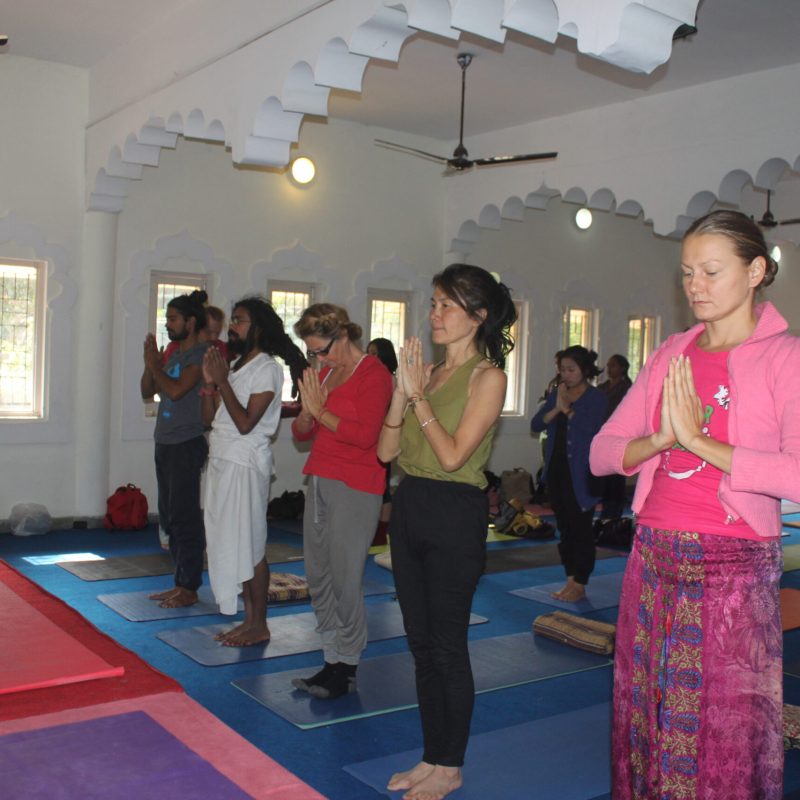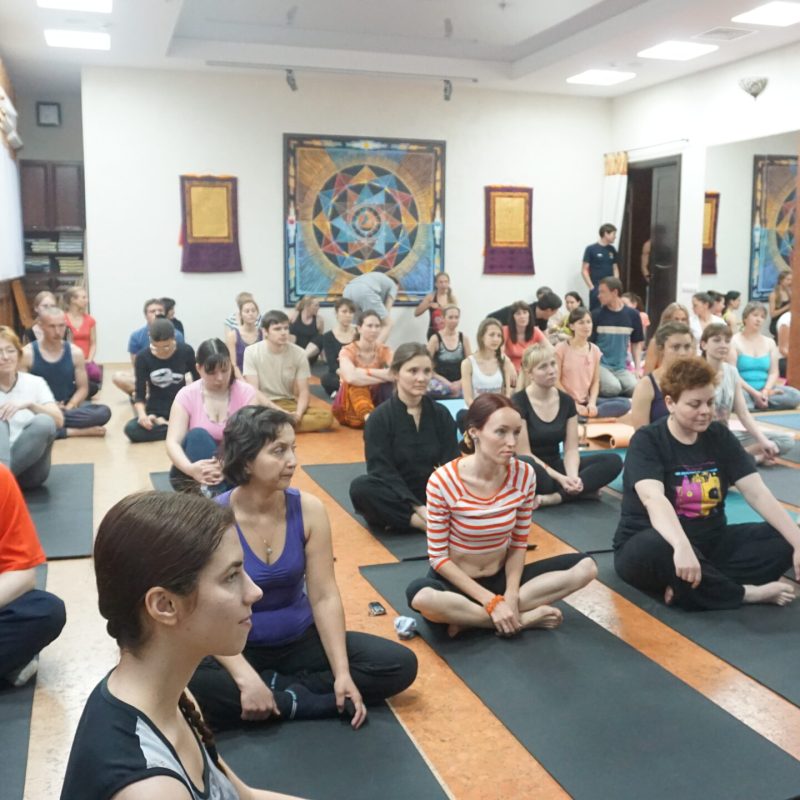The Ayurvedic Diet: Transforming Physical and Mental Health Through Personalized Nutrition
Soham Yoga School Rishikesh, India
The Ayurvedic Diet: Its Profound Impact on Physical and Mental Health
The Ayurvedic diet, rooted in ancient Indian medicine, promotes balance and harmony within the body through personalized nutrition. By aligning dietary choices with an individual’s dosha (constitution)—Vata, Pitta, or Kapha—the Ayurvedic diet aims to optimize health, enhance mental well-being, and prevent disease. Let’s explore how this diet can positively affect physical and mental health, supported by scientific evidence.
Physical Health Benefits of the Ayurvedic Diet
Enhanced Digestion and Metabolism
Principles: Ayurveda emphasizes fresh, seasonal, and easily digestible foods, often prepared with spices like ginger and turmeric to aid digestion.
Research: A study published in the Journal of Ayurveda and Integrative Medicine (2013) found that Ayurvedic dietary practices improved digestive health and metabolic efficiency by balancing the digestive fire (Agni), which is crucial for optimal digestion and nutrient absorption.
Weight Management
Principles: The Ayurvedic diet recommends foods that balance the doshas and discourage overeating. It promotes mindful eating and considers factors like meal timing and food combinations.
Research: A study in Obesity Reviews (2017) highlighted that personalized diets, such as those in Ayurveda, can be effective for weight management. The diet’s focus on whole foods and balanced eating supports sustainable weight loss and maintenance.
Cardiovascular Health
Principles: Ayurveda advises consuming heart-healthy foods like whole grains, legumes, fresh fruits, and vegetables, while avoiding processed foods and excessive salt.
Research: Research in the Journal of Clinical Lipidology (2018) showed that diets rich in whole, plant-based foods reduce the risk of cardiovascular diseases by lowering blood pressure, cholesterol, and triglyceride levels.
Anti-Inflammatory Effects
Principles: The Ayurvedic diet incorporates anti-inflammatory spices and herbs, such as turmeric, ginger, and garlic, known for their healing properties.
Research: According to a study in Molecular Nutrition & Food Research (2016), these spices have potent anti-inflammatory effects, reducing markers of inflammation and oxidative stress in the body.
Mental Health Benefits of the Ayurvedic Diet
Reduced Stress and Anxiety
Principles: Ayurveda encourages foods that calm the mind and reduce stress, such as warm, cooked meals, and grounding foods like root vegetables and whole grains.
Research: A study in the Journal of Alternative and Complementary Medicine (2015) found that Ayurvedic dietary practices significantly reduced stress and anxiety levels. The inclusion of adaptogenic herbs, such as ashwagandha, also helps manage stress.
Improved Mood and Emotional Balance
Principles: The diet emphasizes sattvic (pure) foods, which are believed to promote mental clarity and emotional stability. These include fresh fruits, vegetables, nuts, seeds, and dairy.
Research: Research published in Nutritional Neuroscience (2018) indicated that diets rich in fruits, vegetables, and nuts are associated with improved mood and reduced risk of depression. Sattvic foods provide essential nutrients that support brain health.
Enhanced Cognitive Function
Principles: Ayurveda recommends foods that support brain function, such as ghee (clarified butter), nuts, seeds, and leafy greens. These foods are believed to enhance memory and cognitive clarity.
Research: A study in Frontiers in Aging Neuroscience (2017) showed that consuming foods rich in healthy fats and antioxidants, like those recommended in Ayurveda, can improve cognitive function and protect against cognitive decline.
Better Sleep Quality
Principles: The Ayurvedic diet suggests calming foods before bedtime, such as warm milk with turmeric or nutmeg, and avoiding stimulants like caffeine.
Research: Research in Sleep Medicine Reviews (2019) found that dietary practices promoting balance and calmness improve sleep quality. Foods that are easy to digest and warm help prepare the body for restful sleep.
Practical Guidelines for an Ayurvedic Diet
Personalized Nutrition
- Identify Your Dosha: Consult with an Ayurvedic practitioner to determine your dosha and receive personalized dietary recommendations.
- Balance the Doshas: Choose foods that balance your specific dosha. For example, Vata types may benefit from warm, moist foods, while Pitta types may thrive on cooling, hydrating foods.
Emphasize Whole, Natural Foods
- Prioritize Organic Foods: Focus on organic fruits, vegetables, whole grains, legumes, nuts, and seeds. These foods provide essential nutrients and are easier for the body to digest and assimilate.
Mindful Eating Practices
- Eat Slowly and Mindfully: Savor each bite and avoid distractions like television or smartphones during meals. This enhances digestion and fosters a healthier relationship with food.
Proper Meal Timing
- Follow Ayurvedic Guidelines: Eat the largest meal at midday when digestion is strongest and have a lighter evening meal.
Incorporate Healing Spices
- Use Beneficial Spices: Integrate spices like turmeric, ginger, cumin, and coriander into your cooking. These not only enhance flavor but also offer numerous health benefits.
Embracing the Ayurvedic Diet: A Path to Holistic Health
The Ayurvedic diet, with its emphasis on personalized nutrition and natural, whole foods, offers a powerful way to enhance both physical and mental health. Supported by scientific research, this approach to nutrition not only helps improve digestion, weight management, and cardiovascular health but also reduces stress, enhances mood, and supports cognitive function. By integrating the principles of the Ayurvedic diet into daily life, individuals can achieve a balanced and harmonious state of well-being.
Explore Our Range of Upcoming Yoga Training Courses Rishikesh

100 Hour Yoga Teacher Training in Rishikesh (India)
Duration: 14 Days
Module: Residential with Meal
Accommodation: Shared Room
Certification: Yoga Alliance USA
Course Fee: 699 USD
Yoga Style: Hatha Yoga

200 Hour Yoga Teacher Training in Rishikesh (India)
Duration: 25 Days
Module: Residential with Meal
Accommodation: Shared Room
Certification: Yoga Alliance USA
Course Fee: 999 USD
Yoga Style: Hatha Yoga

300 Hour Yoga Teacher Training in Rishikesh (India)
Duration: 28 Days
Module: Residential with Meal
Accommodation: Shared Room
Certification: Yoga Alliance USA
Course Fee: 1349 USD
Yoga Style: Hatha Yoga

500 Hour Yoga Teacher Training in Rishikesh (India)
Duration: 55 Days
Module: Residential with Meal
Accommodation: Shared Room
Certification: Yoga Alliance USA
Course Fee: 2699 USD
Yoga Style: Hatha Yoga

07 Days Yoga Retreats in Rishikesh (India)
Duration: 07 Days
Module: Residential with Meal
Accommodation: Shared Room
Certification: Yoga School
Course Fee: 499 USD
Style: Yoga Retreats

10 Days Yoga Retreats in Rishikesh (India)
Duration: 10 Days
Module: Residential with Meal
Accommodation: Shared Room
Certification: Yoga School
Course Fee: 649 USD
Style: Yoga Retreats

Nestled in Rishikesh, Soham Yoga School offers Yoga Alliance certified teacher training programs in Hatha and Ashtanga yoga styles. Emphasizing meditation, pranayama, “and” yoga philosophy, each course—from “100” to “500” hours—promises deep learning “and” personal growth. With comfortable accommodation “and” nutritious meals, graduates gain internationally recognized certifications “and” profound yoga knowledge.
